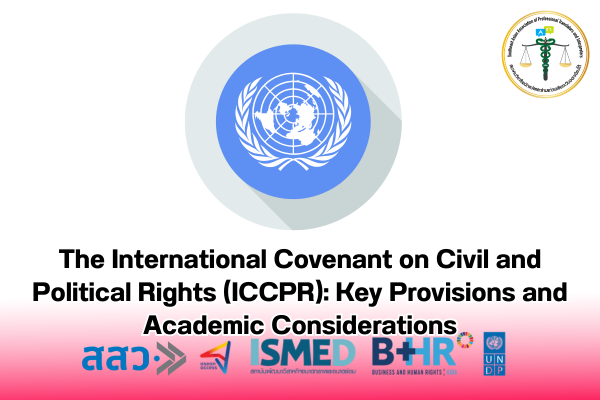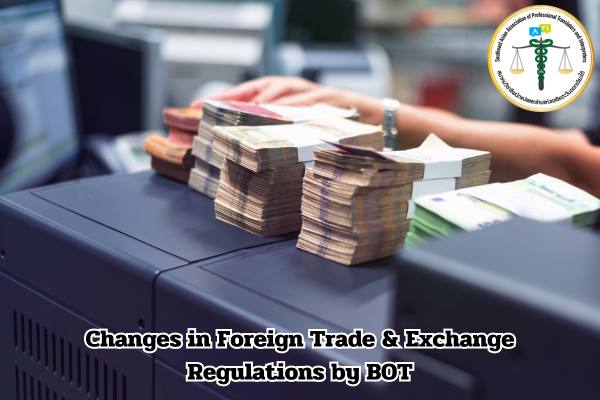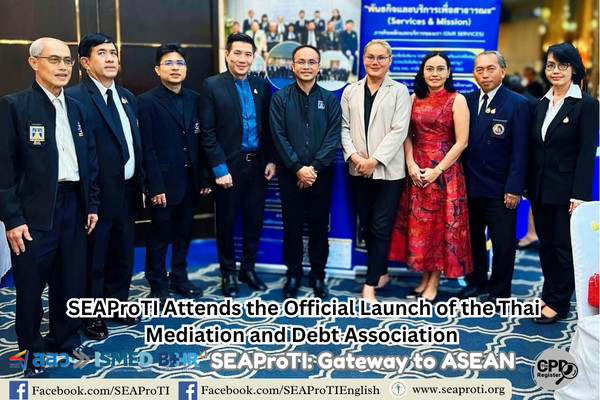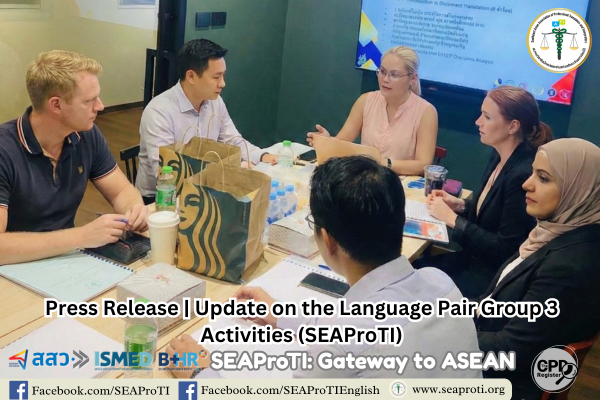The International Covenant on Civil and Political Rights (ICCPR): Key Provisions and Academic Considerations
The International Covenant on Civil and Political Rights (ICCPR) is one of the core international human rights treaties under the United Nations system. Entering into force in 1976, it has been ratified by a large number of state parties, committing them to respect, protect, and promote the civil and political rights of individuals (United Nations, 1966).
Structure and Key Provisions of the ICCPR
1. Preamble
The preamble of the ICCPR emphasizes the obligations of states to uphold human rights in accordance with the United Nations Charter. It also highlights the role of individuals in promoting and protecting rights and freedoms. The rights recognized are not confined to civil and political rights but also extend to economic, social, and cultural rights, ensuring equality for all.
2. Right of Self-Determination
Article 1 of the Covenant recognizes the right of all peoples to self-determination, including the ability to freely determine their political status and pursue their economic, social, and cultural development.
3. General Obligations of State Parties
State parties are obliged to respect and ensure the rights of all individuals without discrimination based on race, color, sex, language, religion, political opinion, national or social origin, property, birth, or other status. They must also establish effective remedies for rights violations and guarantee equality between men and women.
4. Civil and Political Rights
The ICCPR enshrines fundamental rights essential to human dignity, including:
- The right to life and protection from torture or cruel treatment
- Prohibition of slavery and forced labor
- Freedom from arbitrary arrest or detention
- The right to a fair trial and protection from retroactive criminal laws
- Freedom of movement, expression, association, and peaceful assembly
- Political participation, including voting rights and access to public office
- Protection of family rights, children’s rights, and the rights of minorities in language, religion, and culture
- These provisions form the backbone of democracy and the rule of law.
5. Supervisory Mechanism: The Human Rights Committee
The Covenant established the United Nations Human Rights Committee, which monitors compliance by state parties. States are required to submit periodic reports to the Committee and may accept its authority to examine inter-state or individual complaints.
6. Principles of Interpretation and Limitations
The ICCPR prohibits interpretations that would diminish existing rights under international law or deprive peoples of their rights to freely use natural resources.
Academic Considerations
The ICCPR represents a milestone in the development of international human rights law by creating an international supervisory mechanism and imposing concrete obligations on states. However, challenges remain in the domestic implementation of its provisions, particularly in states lacking strong human rights institutions. Legal scholars and human rights practitioners must therefore analyze both the legal text and the political realities to evaluate the effectiveness of state compliance.
Conclusion
The ICCPR provides a cornerstone of the international human rights framework, focusing on fundamental rights and freedoms indispensable to democratic governance and the rule of law. While practical implementation varies across states, the existence of international supervisory mechanisms and growing global awareness continues to play an essential role in urging state parties to fulfill their obligations under the Covenant.
References
United Nations. (1966). International Covenant on Civil and Political Rights. Treaty Series, vol. 999, p. 171. Retrieved from https://www.ohchr.org/en/instruments-mechanisms/instruments/international-covenant-civil-and-political-rights
The Southeast Asian Association of Professional Translators and Interpreters (SEAProTI) has officially announced the qualifications and criteria for registration of Certified Translators, Translation Certification Providers, and Certified Interpreters under Sections 9 and 10 of its Charter, published in the Royal Gazette of the Secretariat of the Cabinet, Office of the Prime Minister of the Kingdom of Thailand, on July 25, 2024, Vol. 141, Part 66 Ng, p. 100. Full text available at: Certified Translators, Translation Certification Providers, and Certified Interpreters
* The Office of the Council of State has proposed that a Royal Decree be enacted to authorize registered translators—including those certified by professional associations or accredited language institutes—to legally certify translations (Letter to SEAProTI dated April 28, 2025)
* SEAProTI is the first professional association in Thailand and Southeast Asia to establish a system for certifying Certified Translators, Translation Certification Providers, and Certified Interpreters.
Head Office: Baan Ratchakhru Building, No. 33, Room 402, Soi Phaholyothin 5, Phaholyothin Road, Phaya Thai Subdistrict, Phaya Thai District, Bangkok 10400, Thailand
Email: hello@seaproti.com Telephone: (+66) 2-114-3128 (Office hours: Monday–Friday, 9:00 AM – 5:00 PM)
กติการะหว่างประเทศว่าด้วยสิทธิพลเมืองและสิทธิทางการเมือง (International Covenant on Civil and Political Rights – ICCPR) เป็นหนึ่งในสนธิสัญญาหลักด้านสิทธิมนุษยชนระหว่างประเทศ ภายใต้ระบบขององค์การสหประชาชาติ สนธิสัญญานี้มีผลบังคับใช้เมื่อปี ค.ศ. 1976 และปัจจุบันมีรัฐภาคีจำนวนมากที่เข้าร่วม ภายใต้พันธกรณีในการเคารพ คุ้มครอง และส่งเสริมสิทธิพลเมืองและสิทธิทางการเมืองของบุคคล (United Nations, 1966)
โครงสร้างและสาระสำคัญของ ICCPR
1. วรรคอารัมภบท
วรรคอารัมภบทของ ICCPR เน้นพันธกรณีของรัฐในการปฏิบัติตามหลักสิทธิมนุษยชนตามกฎบัตรสหประชาชาติ รวมทั้งเน้นบทบาทหน้าที่ของบุคคลในการส่งเสริมและคุ้มครองสิทธิและเสรีภาพ สิทธิที่กำหนดไว้ไม่ได้จำกัดเฉพาะสิทธิพลเมืองและการเมือง แต่ยังรวมถึงสิทธิด้านเศรษฐกิจ สังคม และวัฒนธรรมอย่างเท่าเทียมกัน
2. สิทธิในการกำหนดเจตจำนงตนเอง (Right of Self-Determination)
มาตราแรกของกติกานี้รับรองสิทธิของประชาชนทุกชาติที่จะกำหนดเจตจำนงตนเอง รวมถึงการกำหนดสถานะทางการเมืองและการพัฒนาทางเศรษฐกิจ สังคม และวัฒนธรรมของตนเอง
3. พันธกรณีทั่วไปของรัฐภาคี
รัฐภาคีมีพันธกรณีที่จะต้องเคารพและประกันสิทธิของบุคคลทุกคน โดยห้ามการเลือกปฏิบัติด้วยเหตุผลเชื้อชาติ สีผิว เพศ ภาษา ศาสนา ความคิดเห็นทางการเมือง สัญชาติ หรือสถานะอื่น ๆ นอกจากนี้ยังต้องจัดให้มีมาตรการเยียวยาแก่ผู้ที่ถูกละเมิดสิทธิ รวมถึงการรับรองความเสมอภาคระหว่างชายและหญิง
4. สิทธิพลเมืองและสิทธิทางการเมือง
ICCPR ได้บัญญัติสิทธิที่เป็นรากฐานของศักดิ์ศรีความเป็นมนุษย์ ได้แก่
- สิทธิในชีวิตและความปลอดภัยจากการถูกทรมานหรือการปฏิบัติที่โหดร้าย
- การห้ามการเป็นทาสและการใช้แรงงานบังคับ
- การห้ามการจับกุมหรือคุมขังโดยพลการ
- สิทธิที่จะได้รับการพิจารณาคดีอย่างเป็นธรรมและเสรีภาพจากการบังคับใช้กฎหมายอาญาย้อนหลัง
- เสรีภาพในการเคลื่อนไหว การแxสดงความคิดเห็น การรวมกลุ่ม และการชุมนุมโดยสงบ
- สิทธิในการมีส่วนร่วมทางการเมือง การเลือกตั้ง และการดำรงตำแหน่งทางการเมือง
- การคุ้มครองสิทธิของชนกลุ่มน้อยในด้านภาษา ศาสนา และวัฒนธรรม
- สิทธิและเสรีภาพเหล่านี้ถือเป็นหัวใจของระบอบประชาธิปไตยและหลักนิติธรรม
5. กลไกการกำกับดูแล: คณะกรรมการสิทธิมนุษยชน
กติกานี้กำหนดให้มีการจัดตั้งคณะกรรมการสิทธิมนุษยชนแห่งสหประชาชาติ (Human Rights Committee) เพื่อทำหน้าที่ตรวจสอบการปฏิบัติตามพันธกรณีของรัฐภาคี รัฐต้องจัดทำรายงานเพื่อนำเสนอต่อคณะกรรมการ และอาจยอมรับอำนาจในการพิจารณาข้อร้องเรียนระหว่างรัฐหรือต่อรัฐได้
6. หลักการตีความและข้อจำกัด
ICCPR ห้ามมิให้มีการตีความที่เป็นการลดทอนสิทธิที่มีอยู่แล้วในกฎหมายระหว่างประเทศอื่น ๆ หรือการลิดรอนสิทธิของประชาชนในการใช้ทรัพยากรธรรมชาติ
ข้อพิจารณาทางวิชาการ
ICCPR เป็นสนธิสัญญาที่มีความสำคัญเชิงโครงสร้างทางกฎหมายระหว่างประเทศ เนื่องจากสร้างกลไกตรวจสอบระหว่างประเทศและกำหนดพันธกรณีที่เป็นรูปธรรมแก่รัฐภาคี อย่างไรก็ตาม ปัญหาที่พบคือความแตกต่างในการบังคับใช้ภายในประเทศ โดยเฉพาะในรัฐที่ยังขาดกลไกคุ้มครองสิทธิมนุษยชนที่เข้มแข็ง นักวิชาการและผู้ปฏิบัติการด้านสิทธิมนุษยชนจึงมีความจำเป็นต้องศึกษาทั้งในเชิงกฎหมายและการเมือง เพื่อติดตามและประเมินผลการปฏิบัติจริงของรัฐ
บทสรุป
ICCPR เป็นรากฐานสำคัญของระบบสิทธิมนุษยชนระหว่างประเทศ โดยมุ่งเน้นสิทธิและเสรีภาพขั้นพื้นฐานที่จำเป็นต่อการดำรงอยู่ของระบอบประชาธิปไตยและหลักนิติธรรม แม้การปฏิบัติในทางปฏิบัติอาจมีความท้าทาย แต่การมีอยู่ของกลไกระหว่างประเทศและการตระหนักรู้ของสังคมโลกยังคงมีบทบาทสำคัญในการผลักดันให้รัฐภาคีปฏิบัติตามพันธกรณีอย่างแท้จริง
ดาวโหลด:
1. กติการะหว่างประเทศว่าด้วยสิทธิพลเมืองและสิทธิทางการเมือง (ฉบับภาษาอังกฤษ – pdf)
2. กติการะหว่างประเทศว่าด้วยสิทธิพลเมืองและสิทธิทางการเมือง (เอกสารเผยแพร่ของสำนักงาน กสม. – pdf)
เอกสารอ้างอิง
-
- United Nations. (1966). International Covenant on Civil and Political Rights. Treaty Series, vol. 999, p. 171. Retrieved from https://www.ohchr.org/en/instruments-mechanisms/instruments/international-covenant-civil-and-political-rights
* สมาคมวิชาชีพนักแปลและล่ามแห่งเอเชียตะวันออกเฉียงใต้ (SEAProTI) ได้ประกาศหลักเกณฑ์และคุณสมบัติผู้ที่ขึ้นทะเบียนเป็น “นักแปลรับรอง (Certified Translators) และผู้รับรองการแปล (Translation Certification Providers) และล่ามรับรอง (Certified Interpreters)” ของสมาคม หมวดที่ 9 และหมวดที่ 10 ในราชกิจจานุเบกษา ของสำนักเลขาธิการคณะรัฐมนตรี ในสำนักนายกรัฐมนตรี แห่งราชอาณาจักรไทย ลงวันที่ 25 ก.ค. 2567 เล่มที่ 141 ตอนที่ 66 ง หน้า 100 อ่านฉบับเต็มได้ที่: นักแปลรับรอง ผู้รับรองการแปล และล่ามรับรอง
** สำนักคณะกรรมการกฤษฎีกาเสนอให้ตราเป็นพระราชกฤษฎีกา โดยกำหนดให้นักแปลที่ขึ้นทะเบียน รวมถึงผู้รับรองการแปลจากสมาคมวิชาชีพหรือสถาบันสอนภาษาที่มีการอบรมและขึ้นทะเบียน สามารถรับรองคำแปลได้ (จดหมายถึงสมาคม SEAProTI ลงวันที่ 28 เม.ย. 2568)
*** สมาคมวิชาชีพนักแปลและล่ามแห่งเอเชียตะวันออกเฉียงใต้ เป็นสมาคมวิชาชีพแห่งแรกในประเทศไทยและภูมิภาคเอเชียตะวันออกเฉียงใต้ที่มีระบบรับรองนักแปลรับรอง ผู้รับรองการแปล และล่ามรับรอง
สำนักงานใหญ่: อาคารบ้านราชครู เลขที่ 33 ห้อง 402 ซอยพหลโยธิน 5 ถนนพหลโยธิน แขวงพญาไท เขตพญาไท กรุงเทพมหานคร 10400 ประเทศไทย
อีเมล: hello@seaproti.com โทรศัพท์: (+66) 2-114-3128 (เวลาทำการ: วันจันทร์–วันศุกร์ เวลา 09.00–17.00 น.)

























